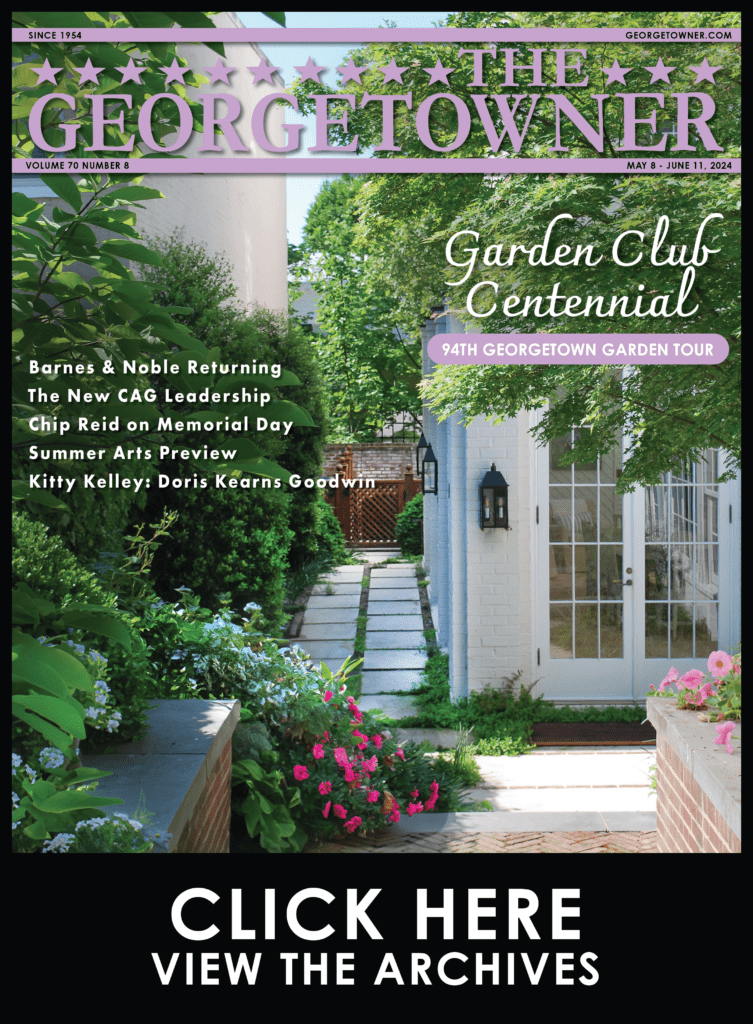Revived ‘Music Man’ Finds True Love at Arena
By • June 18, 2012 0 1078

There’s a certain air of expectation that hangs over artistic director Molly Smith’s production of “The Music Man” at Arena Stage, now running for a better part of the summer there.
It’s the rarefied air of success achieved by Smith with “Oklahoma,” the classic Rodgers and Hammerstein musical with which she chose to open the newly renovated Mead Center for the American Theater, a grand old musical that has quite a few things in common with “The Music Man.”
Broadly speaking, it’s a show, like “Oklahoma,” which resurrects the spirit of a mostly vanished turn-of-the-20th-century America. “Oklahoma” bristled with western confidence, its characters are swept up by and embrace change. “The Music Man” is carried and buoyed by what happens when a burst of con-man energy lifts a classic Midwestern small town out of its narrow-minded, time-locked lethargy. Smith’s way with classic American musicals is to bless them with a breath of fresh air that is both energizing and engaging. It’s as if she waves a magic wand over things and makes the proceedings both rejuvenating and meaningful for today’s audiences.
Meredith Wilson — book author, composer and lyricist of “The Music Man”— may not have a Rodgers and Hammerstein resume but he has the Broadway musical pedigree. “The Music Man” is at turns energized by spirited dancing, it has bowl-you-over songs that make a perfect sales pitch like “76 Trombones” and “Trouble” and soaring ballads, none more pertinent and moving than “Til There was You.” It has romance, it has conflict, it has a believable and recognizable setting, and it resolves itself, not with schmaltz, but with a believable inevitability.
And so far as entertainment machines go, “The Music Man” delivers. It’s a robust vehicle that never flags and runs right past potential pitfalls, thanks to Smith. It has a deftly selected cast that couldn’t be more gifted, especially in the leads. Kate Baldwin, as Marian the town librarian and music teacher, is slight and dynamic, all blazing red hair with a shining, patient sort of charisma. Burke Moses strikes up the band and revs up the room temperature as Harold Hill, the con man as magician. He’s every bit as high-stepping and high-spirited as the iconic Robert Preston, sweeping almost all before him as he works his con of talking the town folks into the dream of a marching band, complete with lessons, uniforms and instruments.
The number of persons who might have seen the original Broadway production “The Music Man” is probably pretty small, although we have the happy coincidence of Barbara Cook, the original Marian, singing for two nights at the Kennedy Center next month. Our memories, if we have any, are tied to the film, where Preston shares the screen with Shirley Jones.
It seems to me that “The Music Man” and “Oklahoma” are about change. They’re transformative to audience and characters, and Smith makes change the beating hearts of both shows, especially this one. You could do a “Music Man” that hits all the highlights of song and story and not disappoint a soul, but this production does a little more for an audience that’s plugged into the whole wide world. The first thing you hear is a slow, almost mournful instrumental riff off the usually jaunty “76 Trombones,” accompanied by the sound of a train on its tracks, the rhythmic, familiar syncopated sound of movement and progress. Out of the Arena stages rises a table and seats filled with traveling salesmen, railing musically against change—you can’t give credit, you gotta know the territory, and so on. They gossip about one of their own, the elusive Harold Hill whose specialty is boondoggling small towns with promises of a marching band.
Hill arrives in River City and knows just what to do—he warns against the evils of sin in pool halls, he sings about marching bands—those trombones again—and he lays siege to the often disappointed, but still dreamy, heart of Marian. The townspeople—a generally unfriendly, gossipy and intolerant lot—are quickly undone by Hill’s abundant charms and soon enough he has the kids dancing, the matrons smiling and the town’s long-time enemies pulling together as a barbershop quartet.
“He sure seems to be having a good time,” one audience member said of Moses as Hill, and that’s a judgement that’s self-evident. Once he collides with Marian in a kind of tug-and-pull of romance and energy, the show practically takes wing. Baldwin, as Marian, has the task of singing songs that usually provide a lull in most musicals—the love-proclaiming ballad, the high, high soprano sweet songs that can kill energy like a fly swatter. She, however, knocks them right of the park, and the show never skips a beat. They get help from the high-flying wrong-side of the track kid Tommy played with energetic charm by Will Burton, and the Nehal Joshi’s goofy sidekick Marcellus, and area veteran actors like Donna Migliacco, John Lescault and Lawrence Redmond.
The costumes may indeed be suggestive of no particular period, although the outrageous costumes worn by the local ladies’ culture club are eye-boggling. If that’s confusing, you’re not paying attention. Wilson — born in Mason City, Iowa, in 1902 — meant to resurrect his hometown with all of its shortcomings and glories, which are located in Marian’s heart, in the tuning fork hum of barbershop quartet, in the leaps of the dancers, in the whispers of gossip, in the small, but greedy ambitions of the mayor, in a time when kisses, instead of investor money, could still be stolen on the back porch.
“The Music Man” isn’t “Oklahoma,” but it is something just as good. In this show, there really is love all around, and you can hear it singing
(“The Music Man” runs in Arena’s Fichandler Stage through July 22)

